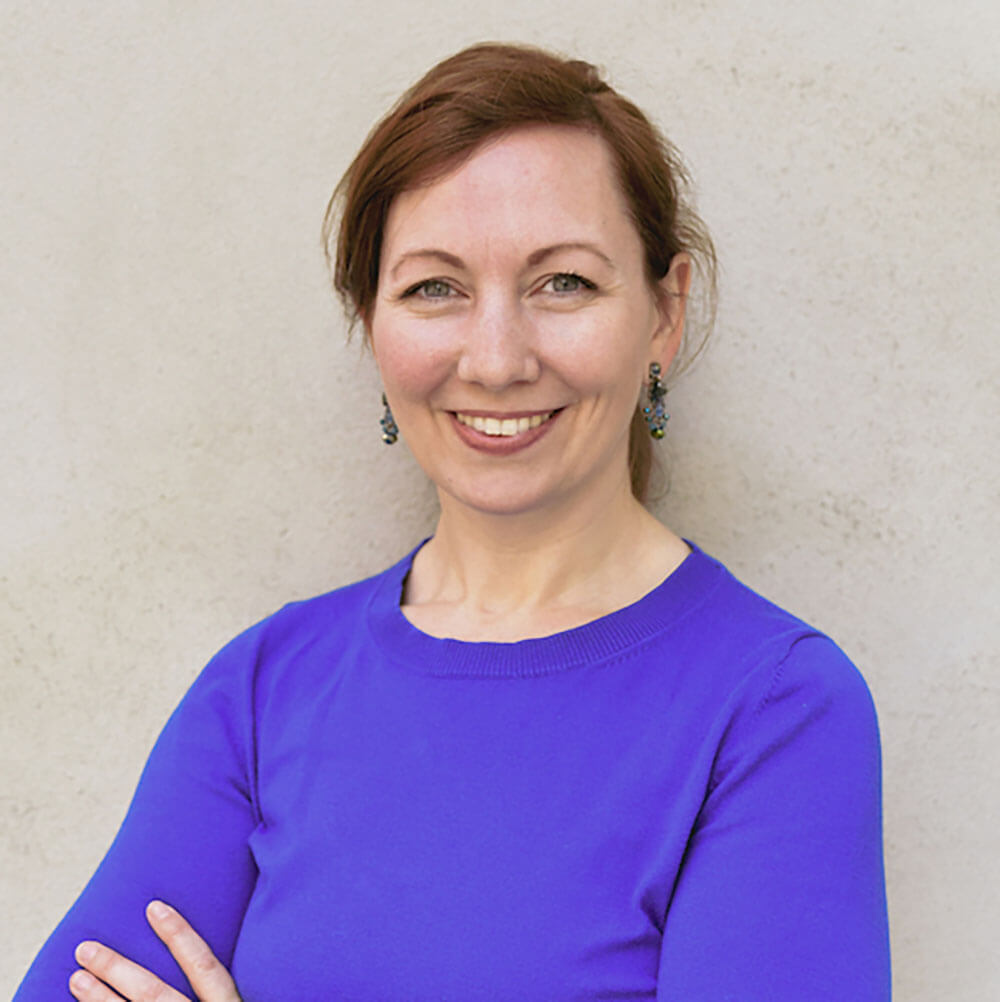Juliane Seyhan (she/her)
For me, diversity and new work belong closely together. Because for real change, you need different perspectives.

I am Juliane Seyhan, founder and owner of the agency minds + matches.
I have been dealing with change in companies for more than 15 years. I originally come from the publishing industry, and for many years I acquired and managed books on topics such as leadership and organizational development. As a manager, I myself led a team at two locations for nine years in a rapidly changing corporation. I therefore know quite well what is going on in companies at the moment.
Since 2021, I have been working with minds + matches to provide speakers on the topics of transformation and diversity to companies and events and to design series of events for organizations. We arrange lectures, but also workshops, consulting and sparring – so companies get inspiration from us and can also be accompanied in the implementation. And if time allows, I accompany authors in their book projects or support speakers in their positioning and content development.
The content of everything I do always revolves around the transformation of the business world.
More investment in the areas where Germany has a lot of catching up to do: Education, modern entrepreneurship, digitalization. And a higher social and political profile for these issues.
And from all of us personally: to work for positive change – within whatever framework is personally possible.
I believe that change always requires both: changes in a large context, different structures. But it also needs change on a small scale, starting with myself and all of us.
For me, diversity and new work go hand in hand. Because real change requires different perspectives. And the quest for diversity is, in my opinion, one of the biggest and most important topics in the transformation of companies – because the topic is more complex than is often assumed.
Why? Diversity, equity and inclusion in the company means: creating a working environment that is good for everyone.
What is meant is that no one should experience discrimination on the basis of social or ethnic origin, gender identity and sexual orientation, age, religion and worldview, or physical and mental abilities. Equal participation for all. And that doesn’t (just) mean gendering in job ads or installing a ramp for wheelchairs at the entrance. Rather, it’s about a corporate culture that includes everyone.
Our working world, with its orientation toward performance, full energy, and full focus on the job, no longer fits the reality of our lives. Many people can’t and don’t want to work like that anymore – for example, because they have care responsibilities or are chronically ill. Or because they are simply exhausted after three years of pandemics and worries about climate change and the war in Ukraine.
Making working conditions fairer for all people: above all and especially for those who experience discrimination in the work environment, and fundamentally for everyone who wants to work under different conditions: this is what diversity and therefore also the transformation of companies as a whole is all about.
A first step could be to take a serious look at the issue of diversity. Asking yourself: for whom are the working conditions in our company really good, and for whom not? How diverse is our workforce and how are our management positions filled? As a concrete example: formulating job advertisements in such a way that they appeal to as many applicants as possible is one thing – but even more important is a corporate culture that matches.
That sounds easier than it is. Because it sometimes requires admitting that perhaps not everything is going as well as expected. The important thing is to get started: Read books about it, listen to a talk, talk about it – in the company, perhaps also approach the topic with external support.
One insight could be: We all have unconscious bias and certain privileges – we shouldn’t blame ourselves for this, but it is important how we deal with it.
With my work, I want to contribute to making the world of work better. There are so many exciting and good changes going on in companies and I think it’s great how many organizations are actively changing things right now. And at the same time, there are many smart people who can support this process: with impulses and concrete ideas for better leadership, good collaboration, and an equal-opportunity working environment. Bringing these people together with change-minded organizations: that’s what drives me.
I’m the mother of a son, and quite honestly, I reach my limits every single day. Let’s face it: being a parent is as challenging as it is wonderful – in these times after pandemic with daycare closures and lots of worries anyway. I didn’t know how tired I could be and somehow still work and manage everyday life until I became a mom.
My husband and I divide our duties at home well and have clear arrangements for sickness, etc. – and yet with a full-time job, a business plus a child, and no grandparents nearby or the luxury of a nanny, our workload is just enormous.
I’m really tired of success mantras. “You can do anything!” That’s just not true: something always falls behind, whether it’s a professional project or time for friends. Personally, it helps me to admit that and plan less, rather than constantly despairing of myself because I haven’t already meditated at 5 a.m.
